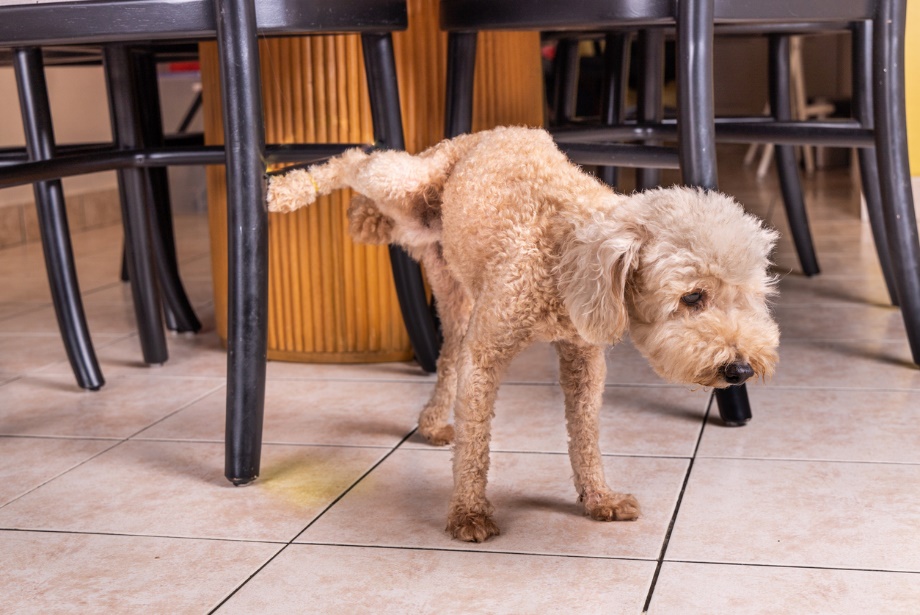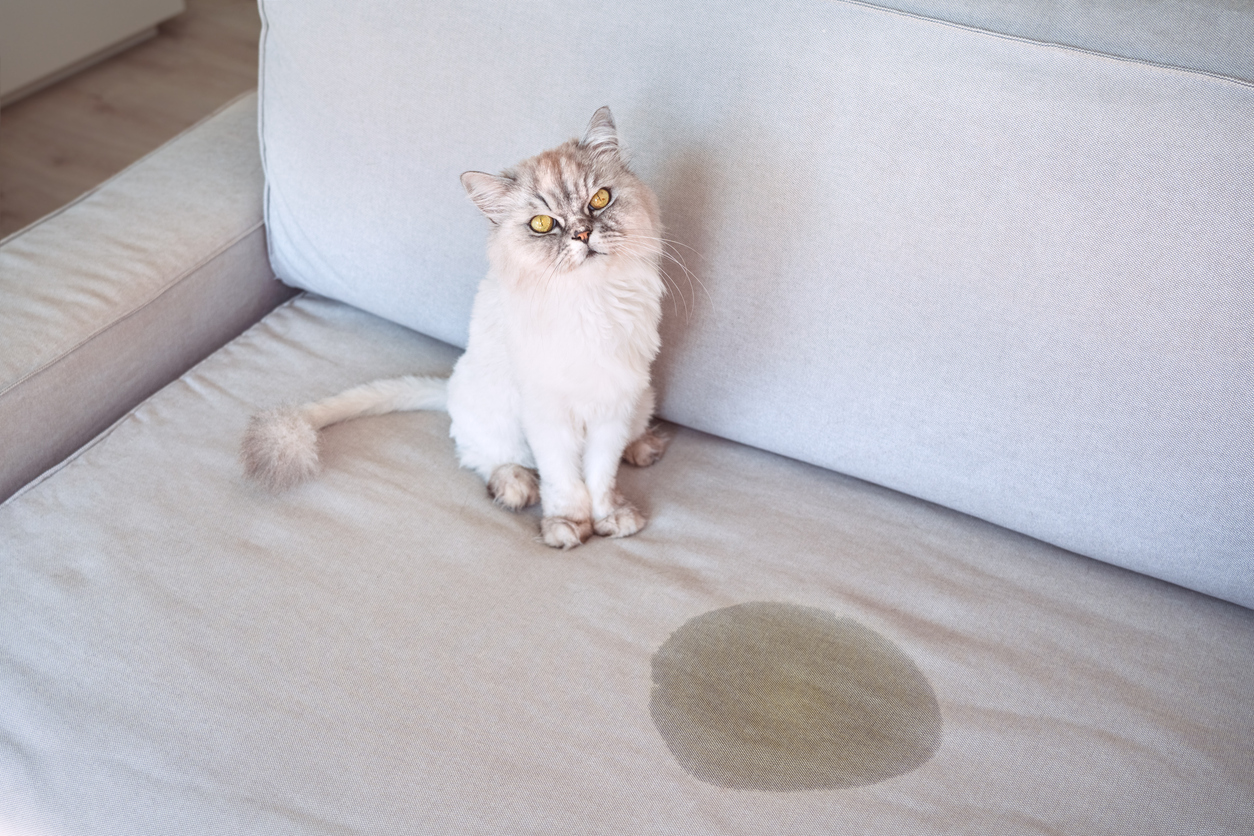As a pet owner, you know your animals’ routines better than anyone. That is why changes in urination — whether it’s your cat visiting the litter box more often, your dog asking to go outside repeatedly, or your rabbit lingering by the water bottle — should never be ignored. Frequent urination can signal underlying health issues, ranging from urinary tract infections to life-threatening blockages that require immediate veterinary attention (MERCK Manual).
At Braescroft Animal Clinic in Houston, TX, we care for cats, dogs, and exotic pets. This September, during Urology Awareness Month, we want to highlight why urinary health matters for every animal in your care.
Frequent Urination in Cats
Cats often hide illness, so bathroom changes may be your first clue. Common causes include:
- Urinary Tract Infections (UTIs): Inflammation and pain leading to frequent urination.
- Bladder Crystals or Stones: Can cause painful urination or blockages.
- Kidney Disease: Common in older cats and linked to increased thirst and urination.
- Diabetes: Excessive drinking and urination may be early signs.
Red flags: straining, crying in the litter box, blood in urine, or urinating outside the box.
Urinary Blockages in Male Cats: A Medical Emergency
Male cats are especially prone to blockages due to their narrow urethra. Even small stones or mucus plugs can stop urine flow entirely. A blockage is life-threatening within 24–48 hours. Signs include:
• Straining with little or no urine
• Painful crying while trying to urinate
• Only drops of urine, often blood-tinged
• Lethargy or hiding
If you see these signs, seek emergency veterinary care immediately.
Frequent Urination in Dogs

Dogs may urinate more often due to:
• UTIs
• Bladder Stones
• Kidney Disease
• Diabetes
Red flags: accidents indoors, nighttime waking, visible discomfort, or blood in urine.
Urinary Blockages in Male Dogs
Though less common than in cats, male dogs can develop blockages if bladder stones lodge in the urethra. Signs include:
• Repeated straining with little urine
• Restlessness or whining while trying to urinate
• Blood in the urine
• Licking at the urinary area
Blockages are emergencies — contact Braescroft Animal Clinic or an emergency hospital right away.
Urinary Problems in Exotic Pets

Exotic pets can also develop urinary issues, and because they often hide illness, subtle changes may be the only clue.
Ferrets:
- Common issues: bladder stones, UTIs, and prostate disease in males that can compress the urethra.
- Signs to watch: frequent straining with little urine, vocalizing in pain, lethargy, or accidents outside the litter area.
- Life-threatening risk: urethral blockages, especially in males, can be medical emergencies similar to cats and dogs.
Pocket Pets (rabbits, guinea pigs, hamsters, gerbils, rats, mice, chinchillas, hedgehogs, sugar gliders):
- Common issues: bladder stones, UTIs, and sludge-like urine (especially in rabbits and guinea pigs).
- Signs to watch: straining, frequent small urinations, blood in urine, hunched posture, decreased appetite, or soiled fur around the hind end.
- Life-threatening risk: complete blockages, while rare, can quickly become emergencies.
Birds:
- Common issues: kidney disease, infections, or nutritional imbalances affecting urination.
- Signs to watch: excess liquid around droppings, straining, tail bobbing, or fluffed feathers.
- Life-threatening risk: blockages are uncommon, but advanced kidney disease can be fatal if untreated.
Reptiles (snakes, lizards, turtles/tortoises):
- Common issues: kidney disease or urate (crystal) buildup, often due to dehydration or poor diet.
- Signs to watch: straining, swelling near the vent, lethargy, or loss of appetite.
- Life-threatening risk: severe urate blockages or impactions, especially in lizards and tortoises, can be fatal.
Amphibians (frogs, salamanders, newts):
- Common issues: kidney disease and fluid balance problems tied to water quality and nutrition.
- Signs to watch: bloating, swelling, lethargy, or abnormal waste output.
- Life-threatening risk: while true blockages are rare, advanced kidney failure can be deadly.
When to Call Braescroft Animal Clinic
If your cat, dog, or exotic pet shows urinary changes or any of the symptoms noted for their species, do not wait. Even if they appear healthy otherwise, urinary issues can progress quickly. Some conditions may require prompt treatment, while others are true emergencies.
Our veterinarians may recommend:
- Urinalysis and bloodwork to identify infection, diabetes, or kidney disease
- Ultrasound or X-rays to check for stones
- Prescription diets or medications for long-term management
- In some cases, surgical intervention if urinary blockages are present — for example, this may be necessary when stones or obstructions cannot be resolved with other treatments
No matter what the situation, our team will guide you through the safest and most effective options for your pet.
Supporting Urinary Health at Home
- Hydration: Ensure pets always have clean, fresh water.
- Clean environments: Scoop litter boxes daily; clean small pet cages and reptile enclosures regularly.
- Balanced diets: Work with your vet to choose diets that support urinary health, especially for animals prone to stones.
- Routine exams: Regular wellness visits help detect problems before they become serious.
Protecting Urinary Health in Cats, Dogs, and Exotic Pets
Urinary problems can affect dogs, cats, and even exotic pets — and they should never be ignored. If you notice changes in your pet’s normal habits, it’s time to schedule an appointment with Braescroft Animal Clinic.
It is also important to remember that pet accidents are not intentional. Never punish your pet — they cannot control these issues, and scolding only adds stress without addressing the underlying medical problem. Instead, see these changes as signs your pet may be struggling and needs veterinary help.
Start the habit of monitoring your animals’ bathroom habits regularly and continue it as part of their care. If you notice anything unusual, call Braescroft Animal Clinic right away. Supporting urinary health helps prevent discomfort, avoid dangerous emergencies, and ensures your pets live longer, healthier lives.
9643 Hillcroft St.
Houston, TX 77096
Emergencies
If you have an emergency outside of our regular business hours, we recommend that you contact one of the following emergency facilities:
Gulf Coast Emergency Clinic
8042 Katy Freeway, Houston 77024
Monday-Thursday: 8AM – 6PM nightly
Friday 6PM – Monday 8AM continuously
Weekends and Holidays: 24-hour continuous care
Sugarland Veterinary Specialist & Emergency Care
1515 Lake Pointe Parkway, Sugarland, TX 77478
Monday-Thursday: 8AM – 6PM nightly
Friday 4PM – Monday 8AM continuously
Weekends and Holidays: 24 hour continuous care




